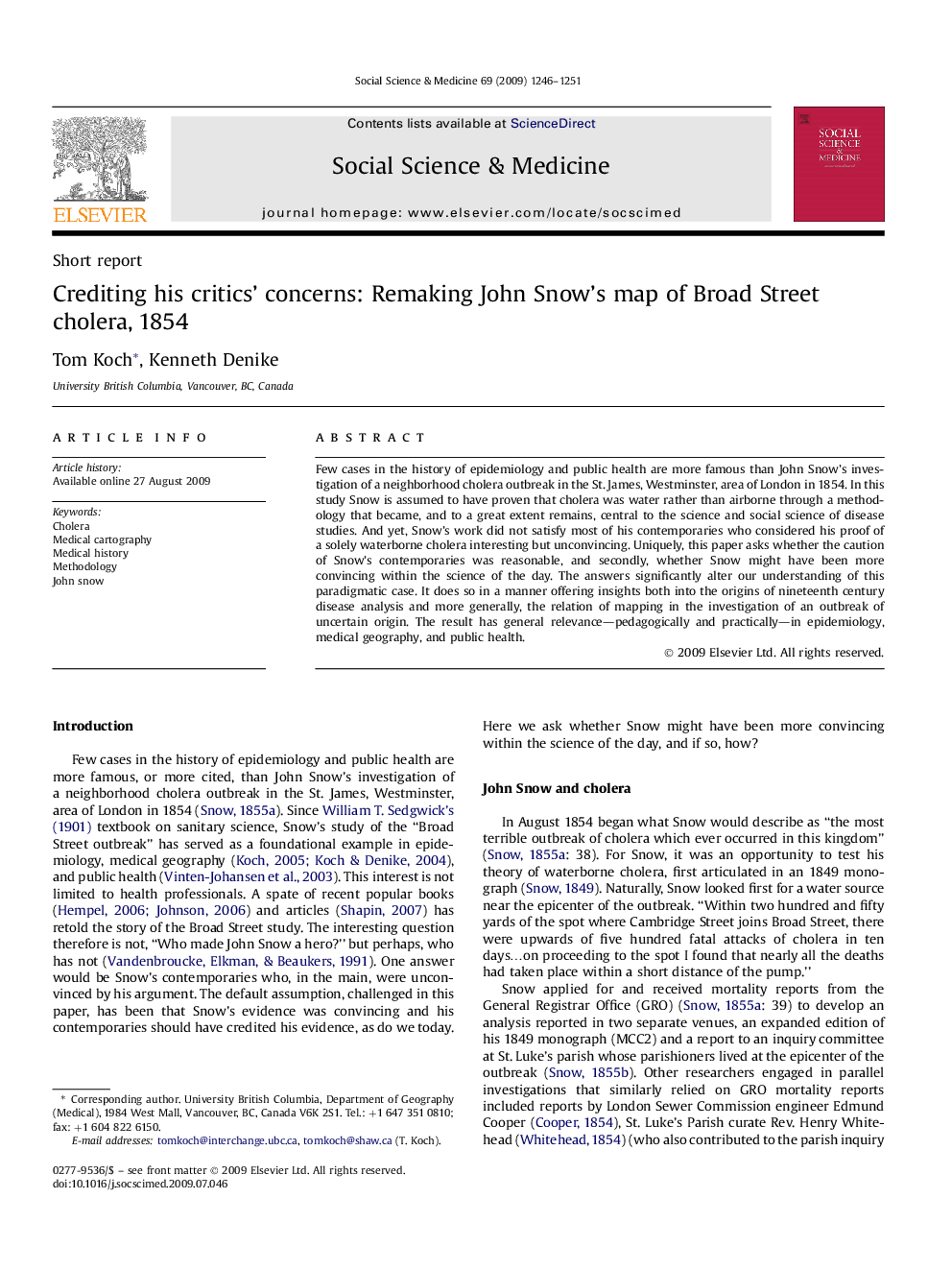| Article ID | Journal | Published Year | Pages | File Type |
|---|---|---|---|---|
| 10472077 | Social Science & Medicine | 2009 | 6 Pages |
Abstract
Few cases in the history of epidemiology and public health are more famous than John Snow's investigation of a neighborhood cholera outbreak in the St. James, Westminster, area of London in 1854. In this study Snow is assumed to have proven that cholera was water rather than airborne through a methodology that became, and to a great extent remains, central to the science and social science of disease studies. And yet, Snow's work did not satisfy most of his contemporaries who considered his proof of a solely waterborne cholera interesting but unconvincing. Uniquely, this paper asks whether the caution of Snow's contemporaries was reasonable, and secondly, whether Snow might have been more convincing within the science of the day. The answers significantly alter our understanding of this paradigmatic case. It does so in a manner offering insights both into the origins of nineteenth century disease analysis and more generally, the relation of mapping in the investigation of an outbreak of uncertain origin. The result has general relevance-pedagogically and practically-in epidemiology, medical geography, and public health.
Related Topics
Health Sciences
Medicine and Dentistry
Public Health and Health Policy
Authors
Tom Koch, Kenneth Denike,
